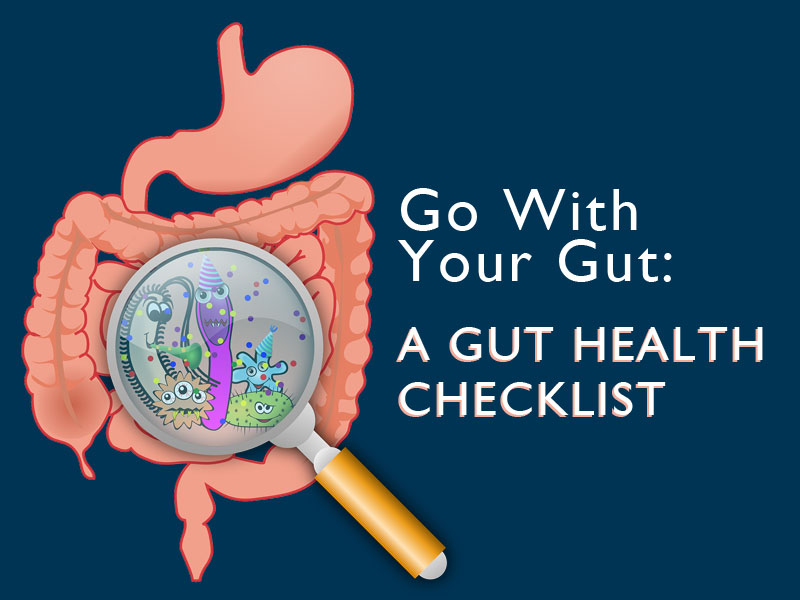
Today, I’m encouraging you to go with your gut this winter (and always!) – so here’s my gut health checklist to help you instinctively make the right choices!
Did you know that you have 300-500 different species of bacteria in your digestive tract? Don’t freak out! Many of these bacteria and microbes are your buddies. They do more than support digestion. They improve immune system function, relieve symptoms of depression, combat obesity, and more!
Studies have also shown that the microbes that live in your gut may be associated with a lower incidence of heart disease, cancer, liver disease, asthma, diabetes, autism, depression, irritable bowel syndrome, colic, Parkinson’s, and many allergies.
Sound good? I think so! Unfortunately, many people overlook the importance of good gut health. Don’t be one of them!
How Do You Know If You Have An Unhealthy Gut?
The seven most common signs of poor gut health include:
- Stomach problems like gas, bloating, constipation, diarrhea, and heartburn. They can all be signs of an unhealthy gut.
- High-sugar diets. These can decrease the number of good bacteria in your gut.
- Unexpected weight changes. Whether up or down, this may be another sign.
- Sleep disturbances like insomnia or constant fatigue. These are often associated with gut health.
- Skin irritation like eczema. This, too, may be one sign of a damaged gut.
- Autoimmune conditions and systemic inflammation. Dare I say it? These are often connected to poor gut health!
- Food intolerances. Poor bacteria quality in the gut can cause these.
Have you been struggling with any of these symptoms? If the answer is yes, there are plenty of ways that you can support all of those beneficial bacteria buddies in your gut.

How Can You Improve the Signs of a Healthy Gut?
You can start by reducing your psychological, environmental, and emotional stress levels by using management techniques like meditation, deep breathing exercises, and progressive muscle relaxation.
In addition these things will count towards a healthy gut:
- Avoid taking antibiotics unless necessary because they can damage the beneficial bacteria and impair immunity.
- Improve your sleep by creating a nourishing sleep routine.
- Exercise regularly to increase species diversity in your gut biome.
- Quit smoking. It alters your intestinal flora by increasing harmful micro-organisms and decreasing the levels of beneficial ones.
However, one of the most critical factors contributing to gut health is your diet. So you may be asking yourself:
What Should I Eat For Gut Health?
When you eat, you’re feeding your whole body not just satisfying your hunger. So, in light of your diet being so important to your gut health, here’s a quick list:
- Focus on a wide range of plant-based
- Eat more of the fiber that’s found in fruit, vegetables, nuts, and whole grains.
- Choose whole foods rather than highly processed foods.
- Eat or drink probiotic and fermented foods like yogurt, kefir, sauerkraut, kimchi, or kombucha. If you already do this and your natural gut microflora is still out of balance, we can offer you an Ortho Biotic This will deliver freeze-dried organisms that will activate in your gut to help restore your microflora balance.
- Go for the extra-virgin olive oil instead of other oils, lard, or butter.
- Add garlic and onion to your meals.
- Eat collagen-boosting foods like bone broth and salmon to support collagen production.
Concerned About Your Gut Health?
Call for an appointment, and I’ll be happy to help you with any concerns you have and get you and your gut back on track!
